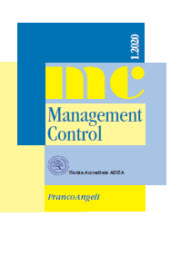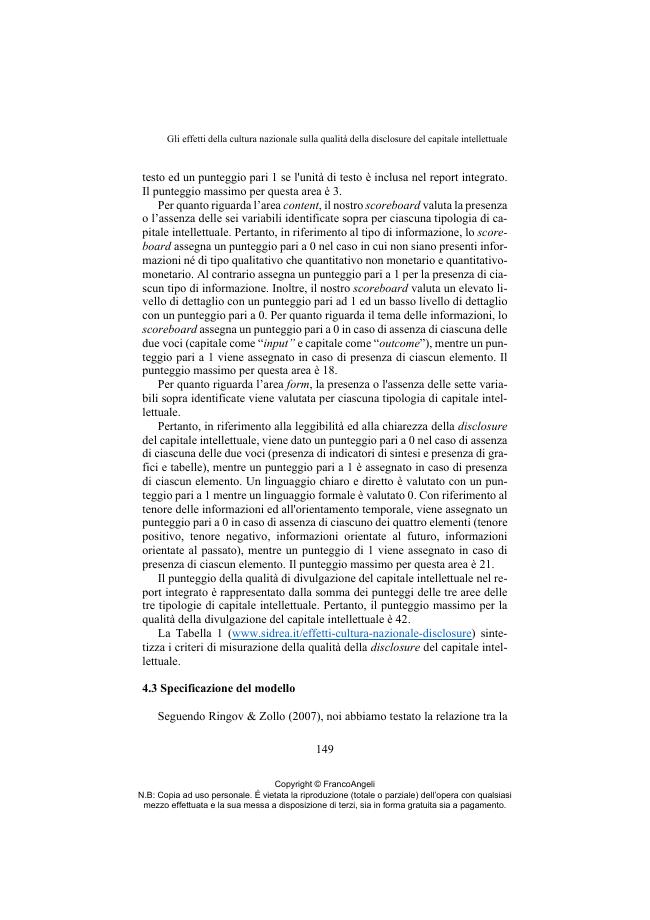Gli effetti della cultura nazionale sulla qualità della disclosure del capitale intellettuale nel contesto dell'Integrated Reporting
137-160 p.
The transition from a production-based economy to a knowledge-based economy has significantly increased the importance of intellectual capital in the firm's value creation process. Since the generally accepted accounting principles do not contain information relating to intellectual capital, for a long time, stakeholders asked the companies to voluntarily disclose information about their intangible resources in order to judge the company's performance and value. The advent of integrated reporting (IR) offers an innovative tool to managers for the disclosure of information relating to intellectual capital. Therefore, in recent years, some researchers are starting to analyse the intellectual capital information contained in the integrated reports.
However, despite the presence of these first studies on the subject, knowledge about the determinants of the intellectual capital disclosure quality in the integrated reports is limited. In fact, the few studies on the topic focus on the firm-level determinants and there are no studies that analyse the impact of coun-try-level determinants. Our study aims to fill this gap by analysing the impact of national culture on the intellectual capital disclosure quality. The results clearly show how the intellectual capital disclosure quality is negatively associated with 4 Hofstede dimensions: power distance, individualism, long-term orientation and indulgence. This is the first study that analyse the relationship between national culture and the quality of intellectual capital disclosure in the context of integrated reporting. [Publisher's text].
Is part of
Management Control : 1, 2020-
Articles from the same issue (available individually)
-
Information
ISSN: 2239-4397
KEYWORDS
- Cultura nazionale, capitale intellettuale, integrated reporting, disclosure



